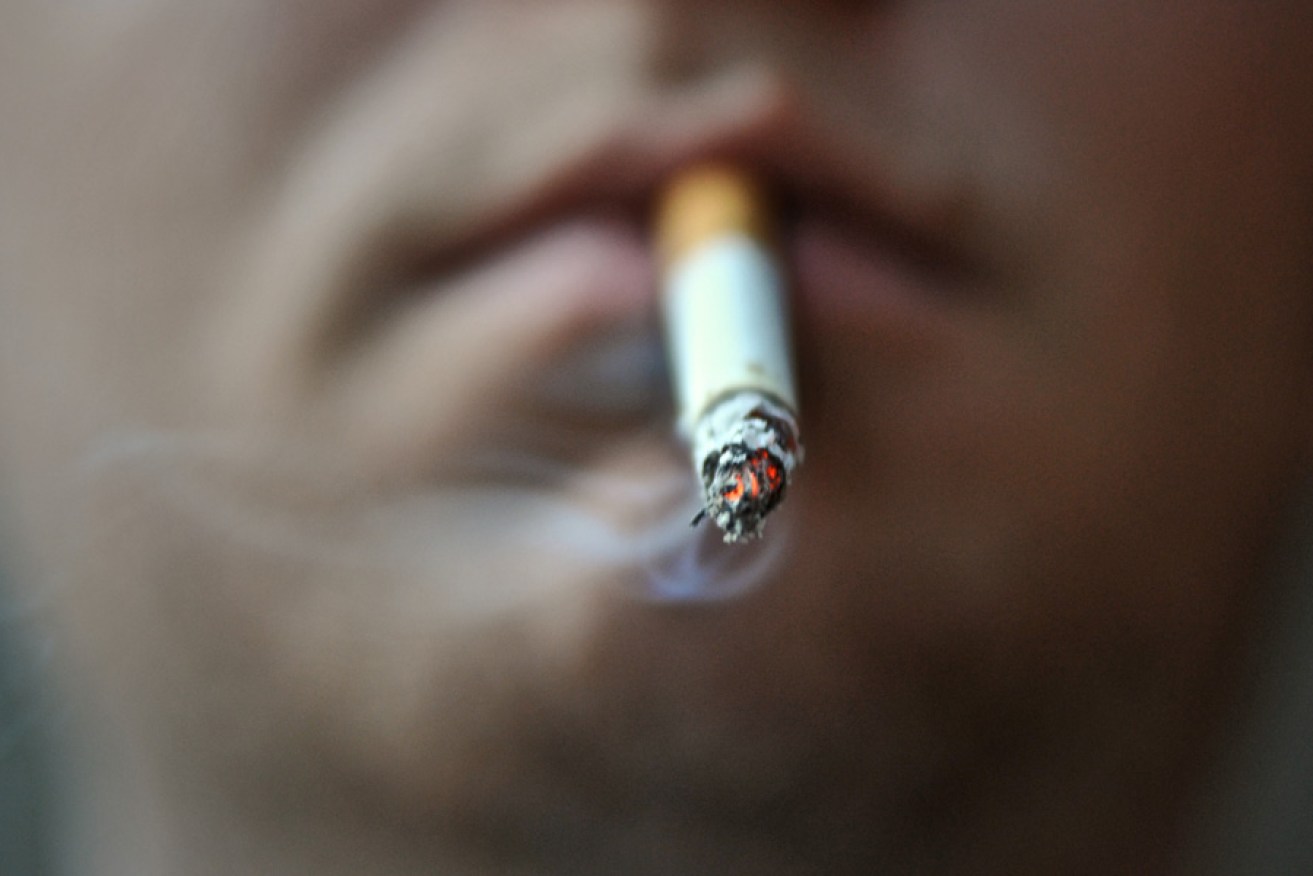South Australian MPs are being lobbied to consider “endgame” smoking strategies that include a total ban on smoking for people born after 2000.
The controversial concept of phasing in a complete ban is also being considered by the Tasmanian parliament after first starting as a grassroots campaign in Singapore.
Former South Australian health minister John Hill has distributed to all MPs a parliamentary research paper he commissioned to look at the concept of an “endgame” for smoking.
“We are now getting to the point where relatively few people are smoking and the rate of people taking up smoking is declining,” Hill said.
“A number of jurisdictions around the world have started talking about endgame strategies.
“This paper looks at those strategies and proposes some measures which might be taken by communities to make sure that the amount of smoking in the community is reduced and even get to the point where there is no smoking.
“That is something I think is worth considering and worth debating.”
Latest figures show16 per cent of South Australians are regular smokers.
The research paper, compiled by the SA Parliamentary library’s head researcher Dr John Weste, shows that while some strategies have been successful in reducing the rate, there are limits to their effect.
“The main reasons for smokers changing their behaviour in 2010 were either health or cost related … the impact of health warnings on cigarette packets declined from 19.4 per cent (saying it had an impact on their decision) in 2007 to 15.2 per cent in 2010,” Weste’s paper found.
The paper listed three proposals that aim to cut out smoking completely.
The first of these, “Smoke-free Singapore”, started as an online campaign proposing that Singaporeans born after a specified date be denied access to tobacco products.
“The basic intent of this proposal is to overturn previous policies which deny minors access to tobacco products until a specified age is reached (currently, 18 years of age in Singapore),” the research paper said.
“No longer would access to tobacco being dependent upon an age limit, but instead access would be denied on the basis of a birth-date limit.
“In short, all Singaporeans born on or after 2000 would be denied access to tobacco for life.”
The campaign argued that the phasing-out of tobacco could be achieved without the short-term disruption of an immediate ban.
“Current smokers retain their legal rights though their smoking-behaviour is clearly presented as something undesirable from which society is moving away thereby mitigating perceptions of attaining smoking-age as being a marker of adulthood,” the campaign argued.
“Employees of tobacco-related industries have a lengthy period in which to find alternative employment.”
The second campaign considered by the research paper was the 2011 New Zealand government’s goal of being smoke-free by 2025.
The strategy defined being smoke-free as meaning that fewer than five per cent of the population will be current smokers and that the sale or supply of tobacco will be “very difficult”.
“The strategy proposed; a proposed minimum increase of 50 per cent in taxation on all tobacco products in 2013, 2014 and 2015; targeted quit services and tobacco control measures; mandatory plain packaging should be in force in 2013.”
The third campaign is still being considered; that of the Tasmanian parliament.
“On 21st August 2012, the Tasmanian Legislative Council debated the restriction of access to tobacco products as per Ivan Dean’s motion, which was subsequently agreed to,” the paper noted.
The motion proposed moves towards a tobacco-free generation of children born this century in Tasmania.
It would be supported by banning flavourings, additives and filter ventilation – including menthol – in tobacco products sold in Tasmania; progressively reducing the availability of tobacco products in Tasmania; and requiring the education department to implement anti-tobacco education and smoking cessation programs in all government schools.
Dean argued that current legislation banning smoking until the age of 18 was misguided and sent the wrong message.
“It creates a real conundrum for young people – it is saying that they cannot and/or should not smoke until they are 18, but from that time on it is okay, and it is not bad for them and we, as the leaders of this state, have made it lawful for them to smoke,” he told parliament.
“It is just sending the wrong message – you cannot smoke before you are 18, but when you turn 18 you can legally smoke.”
The Tasmanian smoke-free generation proposal is now under consultation with the Commissioner for Children in that jurisdiction.”
The South Australian parliament will shortly get its chance to consider similar proposals when a motion from Hill on anti-smoking strategies comes up for debate.
As a former health minister, Hill believes he has the credentials to get the debate started.
Hill – who was health minister for eight years – told InDaily today the time had come for endgame strategies in South Australia.
“That’s what I want to raise in debate; think we have reached stage when we can consider endgame.
“We need to debate what it might look like in SA.”
Hill expects his motion on the success of prevention strategies will be debated next week.





